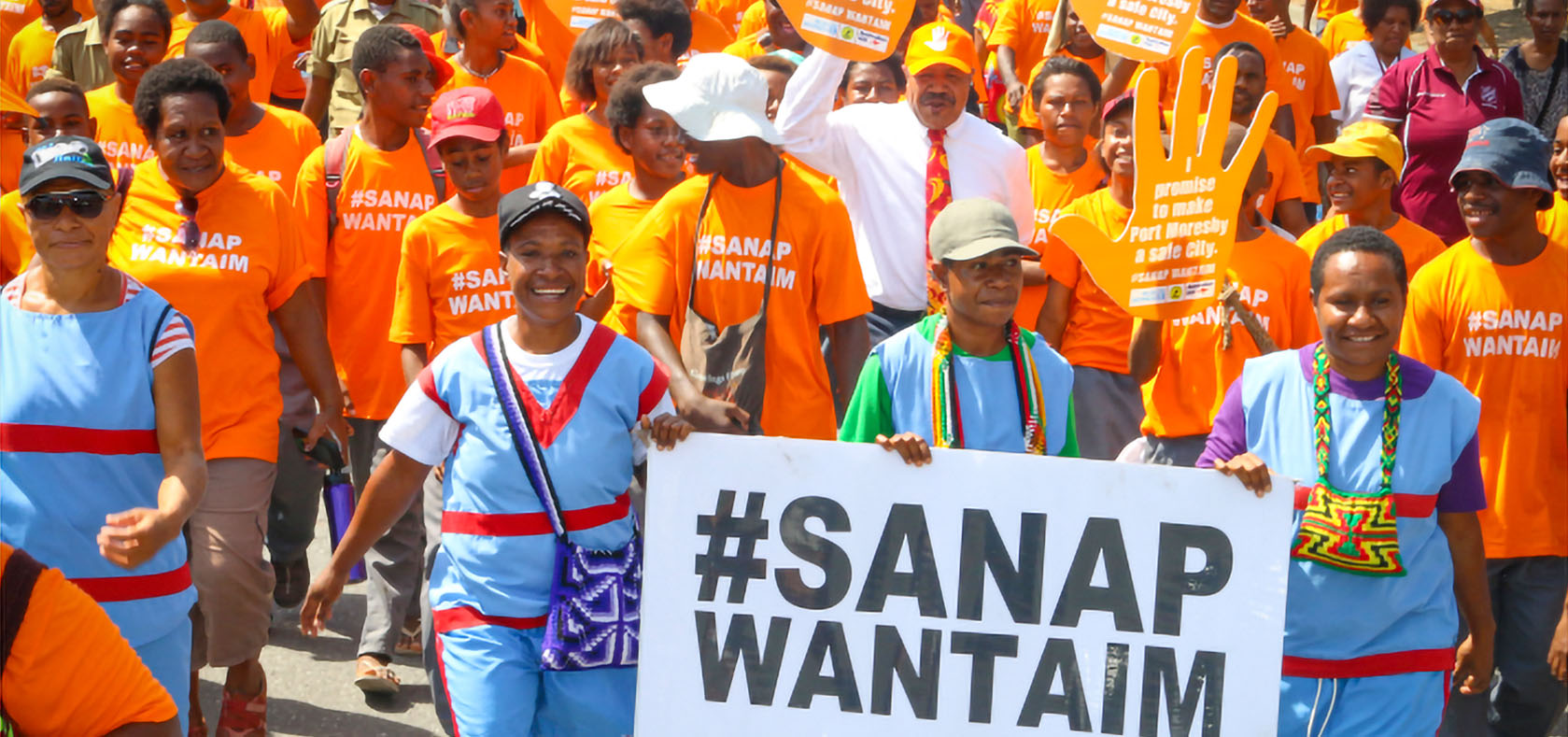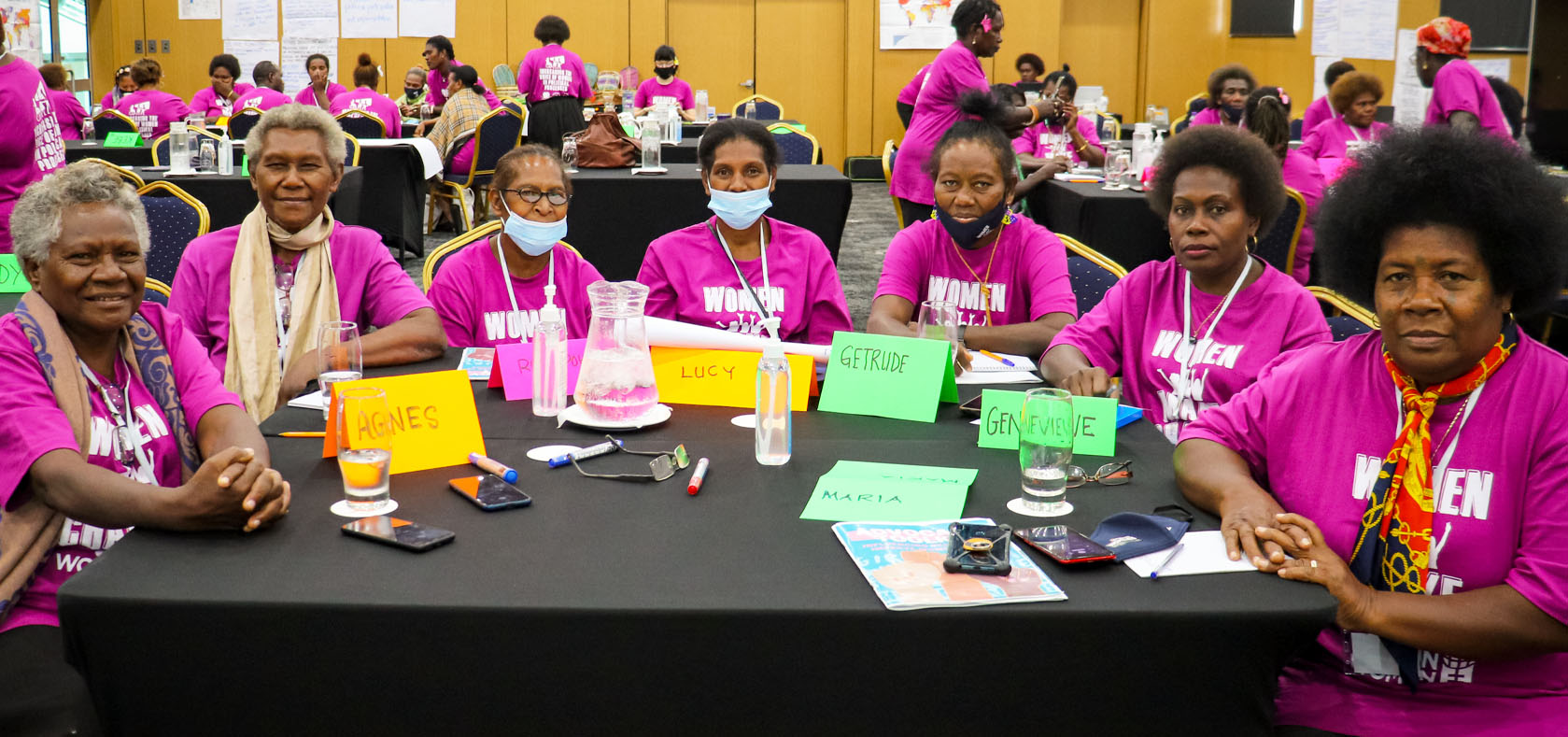About UN Women Papua New Guinea

Papua New Guinea is a lower middle-income country with 8.8 million people, 49 per cent of them women, according to a United Nations Population Division report in 2019. Its gross national per capita income is USD 2,386, a 2021 World Bank report said. The Asian Development Bank in 2021 estimated that 37.5 per cent of the people live below the poverty line, many of them in the rural areas. Rural women, children and people living with disabilities are the groups most vulnerable to poverty, insecurity, and violence.
Progress towards gender equality has been slow. Papua New Guinea ranked 160 out of 161 countries on the United Nations Development Programme’s 2021 Gender Inequality Index.
The Government has made progress in developing policies on women’s rights. The National Policy on Gender Equality and Women’s Empowerment recognizes the importance of women’s leadership, as a right and as a development imperative.
Women’s participation in decision-making low
The number of women in key leadership and decision-making roles remains low as women face cultural and systemic obstacles to participating in political life. In October 2021 there was not a single woman among the 111 members of the National Parliament nor among the Cabinet Ministers. Of the 6,190 ward seats and 319 local-level government seats, only 120 were held by women. The presence of women in senior management and executive appointments also was low.
Levels of violence against women high
Gender-based violence remains a challenge for Papua New Guinea. At least 60 per cent of the country’s women have experienced physical and/or sexual violence from an intimate partner at some point in their lives. This is double the global average. Violence stemming from accusations of sorcery against older women appears to be on the rise.
A report by the International Finance Corporation in 2021 said that Papua New Guinea firms lose an average of 10 days for every staff member every year due to the impact of family and sexual violence.
Some civil conflicts continue
The country’s history has been marked by political and civil conflicts. Stability returned to the Bougainville region with a 2001 peace agreement that established the Autonomous Region of Bougainville, and a referendum in 2019. The Highlands region has suffered from inter-clan rivalries and armed conflict.
Our Programmes

Promoting women’s participation in governance
UN Women advocates for legislative and constitutional reforms to ensure women’s fair access to governance. We provide political leadership training and mentorship to women political leaders, candidates, and young women aspiring for political posts at the local, district, provincial and national levels. UN Women partners with government agencies on these goals. We work with the Integrity of Political Parties and Candidates Commission and Office of the Registrar of Political Parties to enable political parties to adopt and implement party constitutions that promote gender equality and women’s leadership. We work with the Department for Community Development and Religion to support women's groups and leaders in advocacy on issues of national importance.
UN Women also showcases the work of women leaders and helps to change people’s perceptions about the abilities of women leaders.
Ending violence against women and girls
UN Women creates public awareness of the causes and consequences of gender-based violence. We train service providers to prevent the violence and to help survivors. We work with the Government’s Family and Sexual Violence Action Committee to strengthen the referral pathways for women and children who are at risk of or sexual exploitation and abuse, gender-based violence and sorcery-related violence. We also strengthen the Government’s ability to handle issues of gender and protection in emergencies; sexual exploitation and abuse; human rights; and norms, attitudes and behaviors towards women and girls.
UN Women supports the development of policies such as the Human Rights Defenders Law and Policy, which protects defenders as they do their work. We also help women with disabilities, women living with HIV, and other groups to run campaigns to end violence against them. And we help local authorities and transport companies find ways to make public transport safe and reliable for women and girls.
Strengthening women’s peace and security
UN Women strengthens the ability of Government institutions to prevent and respond to intergroup conflict by involving women and young people in the process. We establish networks of young women who advocate for their needs. We support efforts led by women, youths, and people with disabilities to promote unity and reduce triggers of conflict in Bougainville.
We also strengthen the capacity of community mobilizers and mediators, female and male, to prevent and respond to conflicts between groups or tribes. Supporting women’s income security and decent work.
Many women and their families work in the informal sector, where they lack government labour protections. This leaves them especially vulnerable when economic shocks arise.
UN Women promotes protections and economic benefits for women working in 15 markets across 12 provinces. We help government officials, market controllers, security guards and police officers to better manage the markets and create safe and vibrant environments that boost women’s businesses. We also help women form associations that collectively raise their voices about the way the markets are operated. UN Women gives training in practical skills and financial literacy to women’s businesses and is looking at ways to improve their access to finance, so they expand.
Strengthening policies and global norms on gender equality and empowerment
UN Women provides technical support to the Government to amend, develop and pass national plans and policies on violence against women, gender equality and women’s empowerment. We also support the Government to uphold its commitments to international frameworks including the United Nations Commission on the Status of Women, Convention on the Elimination of All Forms of Discrimination against Women, and Sustainable Development Goals.
Contact Information
UN Women Papua New Guinea
Street address: Level 4, Kina Bank Haus, Douglas Street, Downtown, Port Moresby, National Capital District
Mailing address: P.O Box 1041, Port Moresby, Papua New Guinea
Tel: +675 321 9855, +675 790 84679 | Fax: +675 32 19849
Country Representative: Themba Arthur Kalua | e: themba.kalua@unwomen.org
Communications Specialist: Aidah Nanyonjo | e: Aidah.nanyonjo@unwomen.org